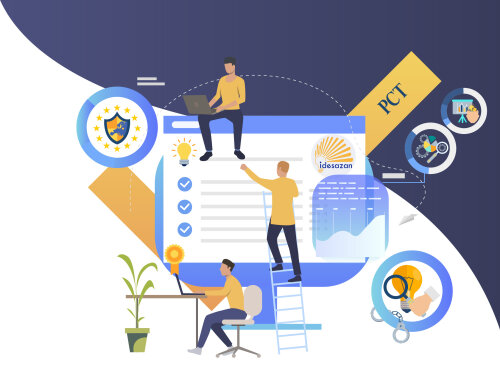Best Data Center & Digital Infrastructure Lawyers in Iran
Share your needs with us, get contacted by law firms.
Free. Takes 2 min.
Or refine your search by selecting a city:
List of the best lawyers in Iran
About Data Center & Digital Infrastructure Law in Iran
Iran's data center and digital infrastructure sector is a fast-evolving field that supports the growth of digital services, e-commerce platforms, cloud computing, and governmental digital transformation. As more businesses and governmental organizations rely on digital services, the need for robust, secure, and compliant data centers has increased. Data center & digital infrastructure law in Iran covers a variety of topics, from data protection and privacy requirements to licensing, telecommunications regulations, and issues related to cross-border data transfers. These legal aspects are designed to facilitate growth in the digital sector while ensuring compliance with national security, privacy, and regulatory obligations.
Why You May Need a Lawyer
Navigating the legal aspects of setting up, operating, or utilizing data centers and digital infrastructure in Iran can be complex. Here are a few instances where legal advice is essential:
- Complying with data localization laws when storing or processing data in Iranian data centers
- Understanding contractual obligations and liability in agreements between data center providers and clients
- Dealing with licensing and regulatory requirements for telecommunication and IT infrastructure
- Managing the risks associated with data breaches or cyber-attacks
- Entering into joint ventures with local or foreign entities for data center services
- Ensuring compliance with sector-specific requirements for e-commerce, banking, or health data
- Resolving disputes related to service level agreements, outages, or data loss
- Understanding intellectual property considerations in cloud computing environments
- Navigating sanctions and restrictions on technology imports and foreign investment
- Addressing employment or labor issues within the data center sector
Local Laws Overview
Several important regulations and standards affect data center and digital infrastructure operations in Iran:
- Data Localization. Iranian law, particularly in sensitive sectors, often requires that personal and critical data be stored within the country to ensure privacy and state security.
- Licensing Requirements. Data center operators and digital service providers may need to obtain specific licenses from authorities such as the Communications Regulatory Authority of Iran (CRA).
- Telecommunications Law. Restrictions around Internet access, bandwidth, and connection to international networks can apply.
- Cybersecurity. National policies obligate companies to implement certain cybersecurity standards and promptly report security incidents to relevant authorities.
- Foreign Investment. Foreign participation in Iranian data centers is restricted in some cases, and must comply with national regulations regarding technology transfer and ownership structures.
- Intellectual Property Protection. Laws ensure software and hardware use is compliant, and that proprietary technology is protected under Iranian IP laws.
- Privacy Regulations. Iran imposes strict rules regarding the collection, storage, and processing of personal information, with penalties for non-compliance.
- Internet and Content Filtering. Data centers hosting content may be required to enforce government-mandated content restrictions and assist in regulatory audits.
Frequently Asked Questions
What is a data center and why are legal issues important in their operation?
A data center is a facility for storing and managing digital data and IT systems. Legal issues are important due to regulatory requirements, data security obligations, and liability for data loss or breaches.
What are the key licensing requirements for setting up a data center in Iran?
Operators typically must obtain licenses from the Communications Regulatory Authority (CRA) and comply with IT and telecommunications standards as set by national authorities.
Are there restrictions on transferring data abroad?
Yes, Iranian law often requires sensitive or personal data to be stored and processed within the country's borders, particularly for critical industries such as banking or healthcare.
How are data breaches handled under Iranian law?
Organizations must report data breaches to relevant governmental bodies and may face penalties for non-compliance or failure to protect data adequately.
Can foreign companies invest in or operate data centers in Iran?
Foreign investment is possible but restricted and subject to compliance with national laws, including ownership limits and technology transfer requirements.
What are the main privacy regulations affecting data centers in Iran?
There are strict rules regarding data collection, use, and storage, with an emphasis on protecting the privacy of individuals whose data is stored in Iranian data centers.
What regulatory risks do data center operators face in Iran?
Operators must comply with data localization, cybersecurity, licensing, and content filtering regulations, and face regulatory audits and fines for violations.
Are there specific legal considerations for cloud computing services?
Cloud providers must ensure compliance with data localization, user privacy, contractual liability, and intellectual property protection under Iranian law.
What happens if there is a dispute between a data center provider and a client?
Disputes are usually handled according to the service contract terms, but may also be subject to commercial and IT arbitration in Iranian courts or designated authorities.
Is it necessary to have written contracts for data center services in Iran?
Yes, written contracts are highly advisable and often legally required to clearly outline service levels, responsibilities, and liabilities of all parties involved.
Additional Resources
The following resources may provide helpful information or assistance:
- Communications Regulatory Authority of Iran (CRA) - the main regulator for telecommunications and digital services
- Iran ICT Guild Organization - offers support for IT and telecommunications companies
- Ministry of Information and Communications Technology
- Iran Computer & Video Games Foundation - regulator for online content and digital distribution
- Iran Chamber of Commerce, Industries, Mines, and Agriculture - assistance with investment and compliance
- Local law firms with expertise in technology law and digital infrastructure
Next Steps
If you require legal assistance for matters related to data centers or digital infrastructure in Iran, consider the following steps:
- Identify your specific needs - whether it is compliance, contract review, dispute resolution, or licensing
- Prepare relevant documentation and details about your project or legal issue
- Consult an experienced Iranian lawyer with expertise in data centers, IT law, or telecommunications
- Reach out to the relevant regulatory body for guidance on licensing or compliance questions
- Review all contracts and agreements with professional legal help before proceeding
- Stay informed about changes in technology regulations and international developments affecting Iran
Proactively seeking legal advice can help avoid costly mistakes and ensure your data center or digital infrastructure project operates within the applicable legal framework in Iran.
Lawzana helps you find the best lawyers and law firms in Iran through a curated and pre-screened list of qualified legal professionals. Our platform offers rankings and detailed profiles of attorneys and law firms, allowing you to compare based on practice areas, including Data Center & Digital Infrastructure, experience, and client feedback.
Each profile includes a description of the firm's areas of practice, client reviews, team members and partners, year of establishment, spoken languages, office locations, contact information, social media presence, and any published articles or resources. Most firms on our platform speak English and are experienced in both local and international legal matters.
Get a quote from top-rated law firms in Iran — quickly, securely, and without unnecessary hassle.
Disclaimer:
The information provided on this page is for general informational purposes only and does not constitute legal advice. While we strive to ensure the accuracy and relevance of the content, legal information may change over time, and interpretations of the law can vary. You should always consult with a qualified legal professional for advice specific to your situation.
We disclaim all liability for actions taken or not taken based on the content of this page. If you believe any information is incorrect or outdated, please contact us, and we will review and update it where appropriate.
Browse data center & digital infrastructure law firms by city in Iran
Refine your search by selecting a city.










